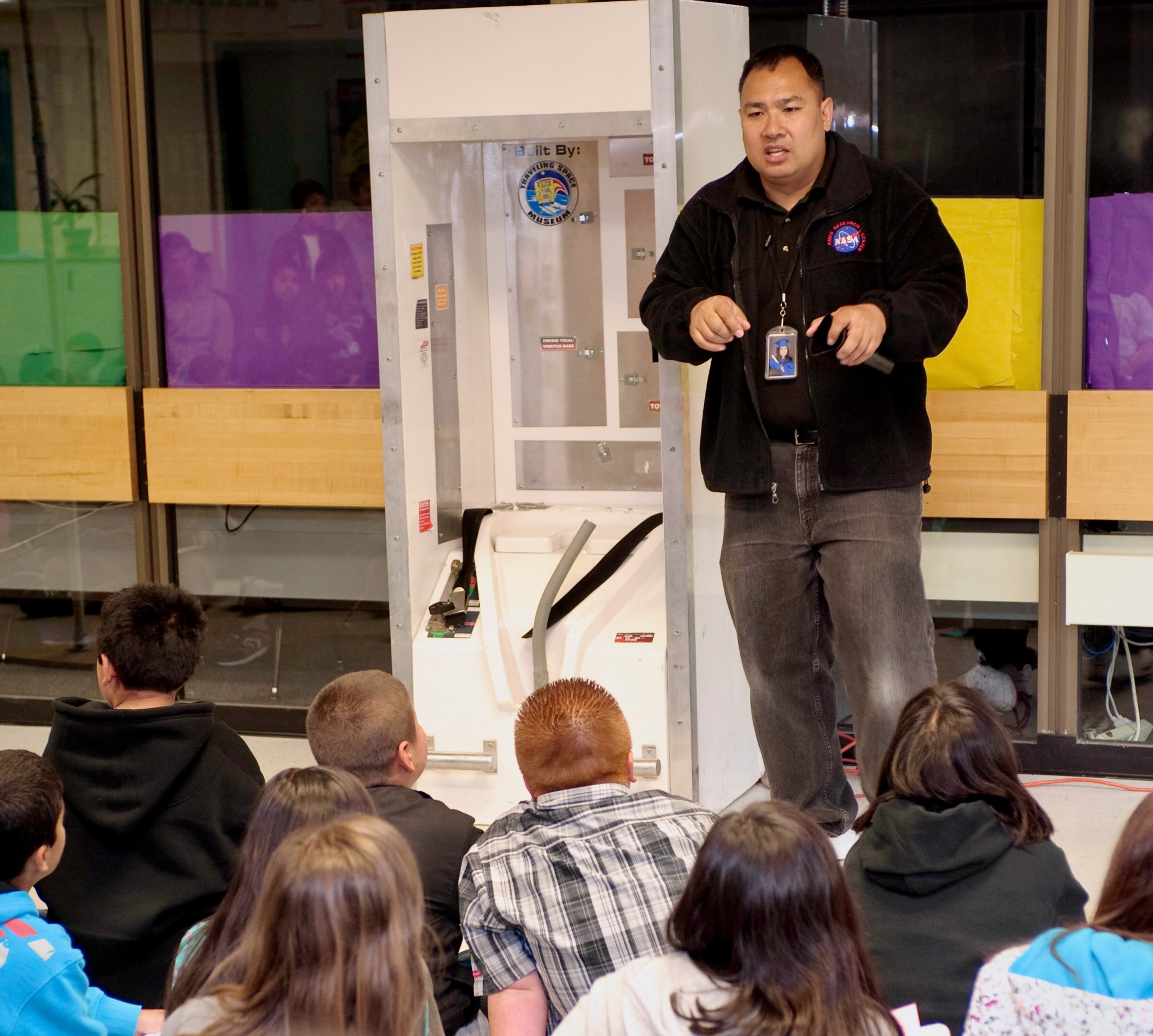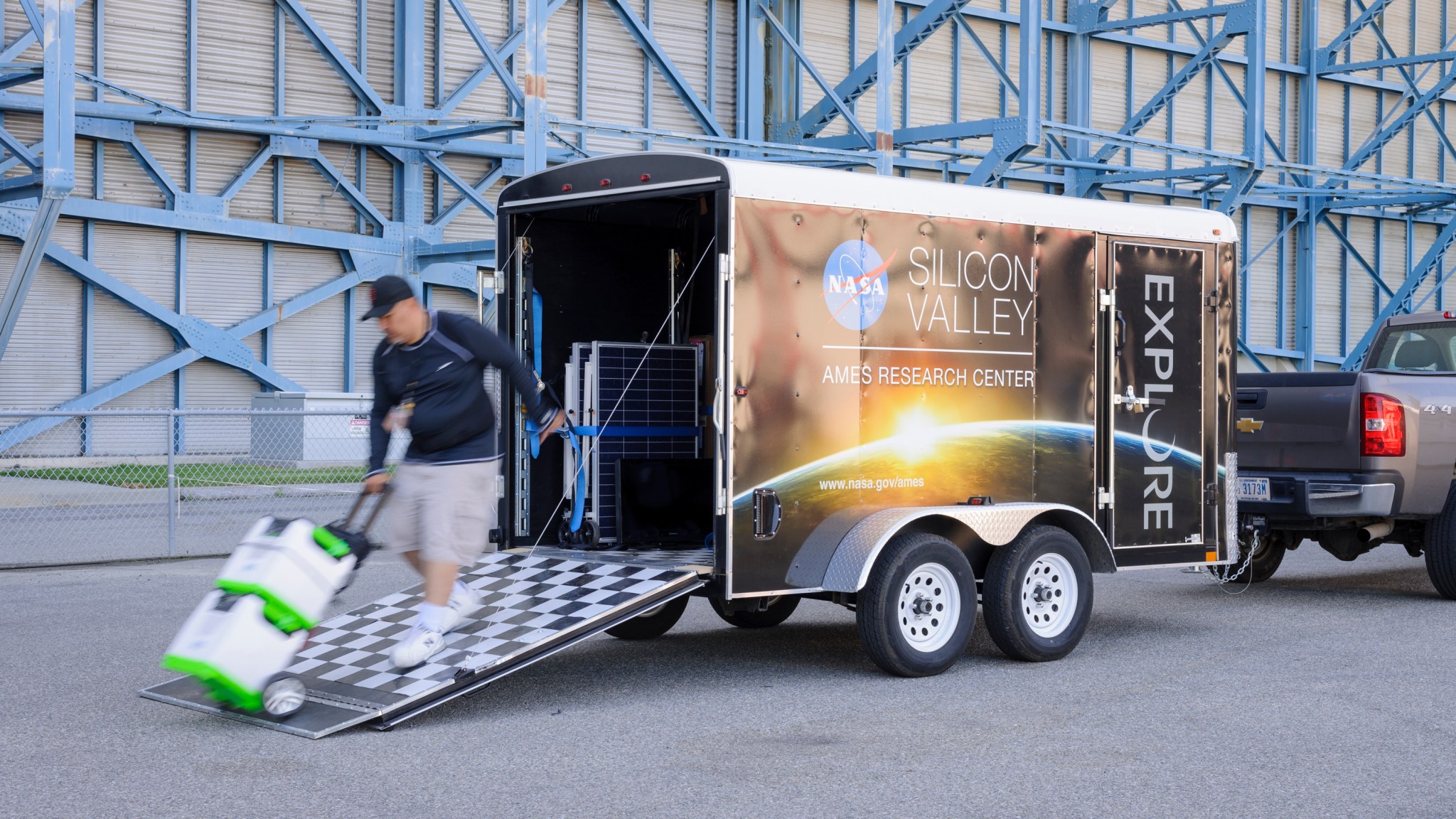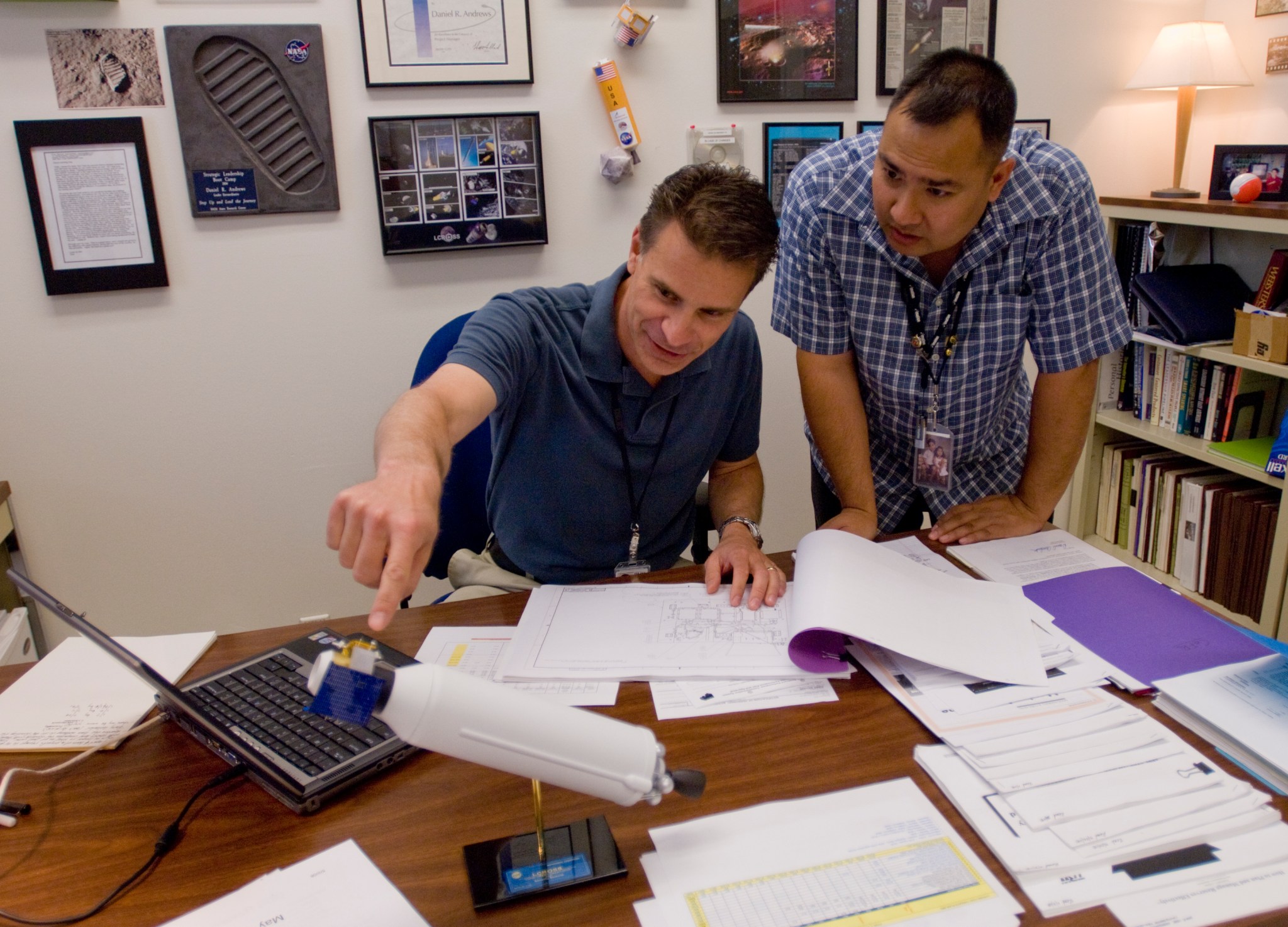
Careers at NASA were not on his radar growing up. But Jonas Dino, public engagement specialist at NASA's Ames Research Center in California's Silicon Valley, ended up with his perfect job that involves connecting people with NASA.
One of the best parts of his job is to learn first-hand about NASA's cutting-edge research and translate these concepts to the next generation.
"I'm excited about what NASA does and where we are going," said Dino, "As an extrovert, I love interacting with the public, especially little kids."
When speaking to younger children, Dino often kneels, to get to their level. With the future of aeronautics and space exploration in mind, he has a message for them: 'NASA needs you.'
"They love space and think it is very cool, but many don't think they could ever work at NASA," said Dino. "I want to help them see: anything is possible."

A first-generation immigrant from the Philippines, Dino's academic start focused on studying life sciences.
"As a Filipino, you're encouraged to go into the medical field as a career," said Dino.
After joining the Marine Corps, Reserve, he returned home to study biology at San Jose State University (SJSU). After doing poorly at organic chemistry, he took his next "logical" step and switched his major to nursing. After working in the field, he realized that was not for him either. Luckily, he had been taking psychology classes, following his interests, and could graduate with a psychology degree by only taking two more classes.
After three changes in major and just getting ready to graduate, Dino was hit by a car. His injury and subsequent recovery gave him time to evaluate what he wanted to do with his life.
"I was pretty good at talking to people and teaching," said Dino. "Maybe I could to that as a job?"
Dino started his teaching career at James Logan - the same high school he graduated from in 1985. He eventually ran for and was elected as a trustee for the New Haven Unified School District in the San Francisco Bay Area. Unfortunately, to take that seat, he could not be a teacher in the district – a conflict of interest. Suddenly needing a job, he found the internship book at SJSU where he was getting his master's degree. Soon, he was evaluating opportunities: a high-tech company or NASA?
"It was during the dotcom boom and my family strongly encouraged me to take the high-tech internship," said Dino. "I took the internship at NASA Ames and have never regretted my decision."
Working as a communicator, Dino has covered the gamut of NASA projects from aeronautics to space missions, including a lunar mission, LCROSS, that helped confirm the presence of water on the Moon.
His favorite part of his job is STEM engagement.
"There is nothing like seeing a kid's eyes get larger, or that proverbial light-bulb-turn-on-above-their-heads when you teach them something new," said Dino. "When you see kids are hungry for science, you need to feed it."
He did serve his community on the school board for four terms - 16 years. Now, he serves as an advocate for the NASA Ames workforce as president of the Ames Federal Employees Union.
"NASA is a great place to work, it has been a blast, for nearly 24 years."

A little push in the right direction, even incidental, can have a huge effect on your trajectory - and thus where you end up - if it happens early on. This is true both for rogue rocks, on the loose in the solar system, and for people too.
"When I was a kid, I took apart everything because I wanted to know what's inside and how everything worked," said Dino. "Looking back, I should have been an engineer."
"I have two children, a son and a daughter," said Dino. "I'm encouraging my daughter to go into STEM; we need more young women in STEM careers but too many girls are pushed away from this choice by the time they are in middle school. I also want to encourage Filipino kids to make their own career choices and maybe even to come work for NASA."
To help pursue these goals, Dino started a memorial scholarship in honor of his father for Filipino students going into STEM fields. He handed out the inaugural scholarship for this last May.






